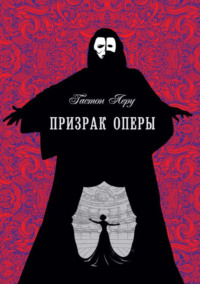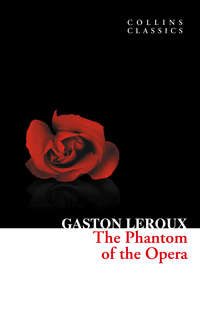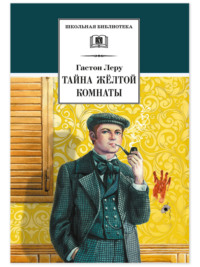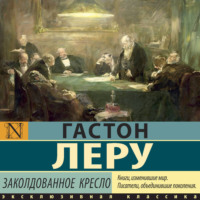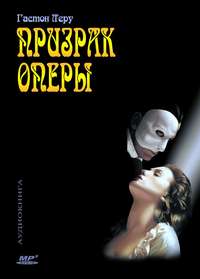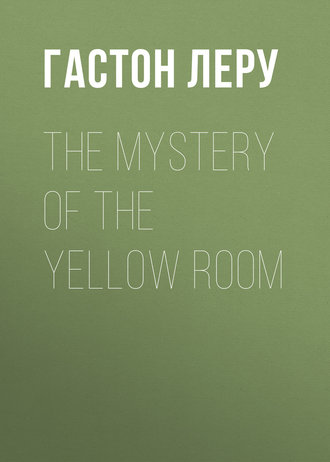 полная версия
полная версияThe Mystery of the Yellow Room
“Why that ‘now’? When you are, as I am, in search of some hidden secret, you can’t afford to have anything escape you. You’ve got to know the meaning of everything. We had come into a rather out-of-the-way part of the country which had been turned topsy-turvey by a crime, and my reason led me to suspect every phrase that could bear upon the event of the day. ‘Now,’ I took to mean, ‘since the outrage.’ In the course of my inquiry, therefore, I sought to find a relation between that phrase and the tragedy. We went to the Donjon Inn for breakfast; I repeated the phrase and saw, by the surprise and trouble on Daddy Mathieu’s face, that I had not exaggerated its importance, so far as he was concerned.
“I had just learned that the concierges had been arrested. Daddy Mathieu spoke of them as of dear friends—people for whom one is sorry. That was a reckless conjunction of ideas, I said to myself. ‘Now,’ that the concierges are arrested, ‘we shall have to eat red meat.’ No more concierges, no more game! The hatred expressed by Daddy Mathieu for Monsieur Stangerson’s forest-keeper—a hatred he pretended was shared by the concierges led me easily to think of poaching. Now as all the evidence showed the concierges had not been in bed at the time of the tragedy, why were they abroad that night? As participants in the crime? I was not disposed to think so. I had already arrived at the conclusion, by steps of which I will tell you later—that the assassin had had no accomplice, and that the tragedy held a mystery between Mademoiselle Stangerson and the murderer, a mystery with which the concierges had nothing to do.
“With that theory in my mind, I searched for proof in their lodge, which, as you know, I entered. I found there under their bed, some springs and brass wire. ‘Ah!’ I thought, ‘these things explain why they were out in the park at night!’ I was not surprised at the dogged silence they maintained before the examining magistrate, even under the accusation so grave as that of being accomplices in the crime. Poaching would save them from the Assize Court, but it would lose them their places; and, as they were perfectly sure of their innocence of the crime they hoped it would soon be established, and then their poaching might go on as usual. They could always confess later. I, however, hastened their confession by means of the document Monsieur Stangerson signed. They gave all the necessary ‘proofs,’ were set at liberty, and have now a lively gratitude for me. Why did I not get them released sooner? Because I was not sure that nothing more than poaching was against them. I wanted to study the ground. As the days went by, my conviction became more and more certain. The day after the events of the inexplicable gallery I had need of help I could rely on, so I resolved to have them released at once.”
That was how Joseph Rouletabille explained himself. Once more I could not but be astonished at the simplicity of the reasoning which had brought him to the truth of the matter. Certainly this was no big thing; but I think, myself, that the young man will, one of these days, explain with the same simplicity, the fearful tragedy in “The Yellow Room” as well as the phenomenon of the inexplicable gallery.
We reached the Donjon Inn and entered it.
This time we did not see the landlord, but were received with a pleasant smile by the hostess. I have already described the room in which we found ourselves, and I have given a glimpse of the charming blonde woman with the gentle eyes who now immediately began to prepare our breakfast.
“How’s Daddy Mathieu?” asked Rouletabille.
“Not much better—not much better; he is still confined to his bed.”
“His rheumatism still sticks to him, then?”
“Yes. Last night I was again obliged to give him morphine—the only drug that gives him any relief.”
She spoke in a soft voice. Everything about her expressed gentleness. She was, indeed, a beautiful woman; somewhat with an air of indolence, with great eyes seemingly black and blue—amorous eyes. Was she happy with her crabbed, rheumatic husband? The scene at which we had once been present did not lead us to believe that she was; yet there was something in her bearing that was not suggestive of despair. She disappeared into the kitchen to prepare our repast, leaving on the table a bottle of excellent cider. Rouletabille filled our earthenware mugs, loaded his pipe, and quietly explained to me his reason for asking me to come to the Glandier with revolvers.
“Yes,” he said, contemplatively looking at the clouds of smoke he was puffing out, “yes, my dear boy, I expect the assassin to-night.” A brief silence followed, which I took care not to interrupt, and then he went on:
“Last night, just as I was going to bed, Monsieur Robert Darzac knocked at my room. When he came in he confided to me that he was compelled to go to Paris the next day, that is, this morning. The reason which made this journey necessary was at once peremptory and mysterious; it was not possible for him to explain its object to me. ‘I go, and yet,’ he added, ‘I would give my life not to leave Mademoiselle Stangerson at this moment.’ He did not try to hide that he believed her to be once more in danger. ‘It will not greatly astonish me if something happens to-morrow night,’ he avowed, ‘and yet I must be absent. I cannot be back at the Glandier before the morning of the day after to-morrow.’
“I asked him to explain himself, and this is all he would tell me. His anticipation of coming danger had come to him solely from the coincidence that Mademoiselle Stangerson had been twice attacked, and both times when he had been absent. On the night of the incident of the inexplicable gallery he had been obliged to be away from the Glandier. On the night of the tragedy in “The Yellow Room” he had also not been able to be at the Glandier, though this was the first time he had declared himself on the matter. Now a man so moved who would still go away must be acting under compulsion—must be obeying a will stronger than his own. That was how I reasoned, and I told him so. He replied ‘Perhaps.’—I asked him if Mademoiselle Stangerson was compelling him. He protested that she was not. His determination to go to Paris had been taken without any conference with Mademoiselle Stangerson.
“To cut the story short, he repeated that his belief in the possibility of a fresh attack was founded entirely on the extraordinary coincidence. ‘If anything happens to Mademoiselle Stangerson,’ he said, ‘it would be terrible for both of us. For her, because her life would be in danger; for me because I could neither defend her from the attack nor tell of where I had been. I am perfectly aware of the suspicions cast on me. The examining magistrate and Monsieur Larsan are both on the point of believing in my guilt. Larsan tracked me the last time I went to Paris, and I had all the trouble in the world to get rid of him.’
“‘Why do you not tell me the name of the murderer now, if you know it?’ I cried.
“Monsieur Darzac appeared extremely troubled by my question, and replied to me in a hesitating tone:
“‘I?—I know the name of the murderer? Why, how could I know his name?’
“I at once replied: ‘From Mademoiselle Stangerson.’
“He grew so pale that I thought he was about to faint, and I saw that I had hit the nail right on the head. Mademoiselle and he knew the name of the murderer! When he recovered himself, he said to me: ‘I am going to leave you. Since you have been here I have appreciated your exceptional intelligence and your unequalled ingenuity. But I ask this service of you. Perhaps I am wrong to fear an attack during the coming night; but, as I must act with foresight, I count on you to frustrate any attempt that may be made. Take every step needful to protect Mademoiselle Stangerson. Keep a most careful watch of her room. Don’t go to sleep, nor allow yourself one moment of repose. The man we dread is remarkably cunning—with a cunning that has never been equalled. If you keep watch his very cunning may save her; because it’s impossible that he should not know that you are watching; and knowing it, he may not venture.’
“‘Have you spoken of all this to Monsieur Stangerson?’
“‘No. I do not wish him to ask me, as you just now did, for the name of the murderer. I tell you all this, Monsieur Rouletabille, because I have great, very great, confidence in you. I know that you do not suspect me.’
“The poor man spoke in jerks. He was evidently suffering. I pitied him, the more because I felt sure that he would rather allow himself to be killed than tell me who the murderer was. As for Mademoiselle Stangerson, I felt that she would rather allow herself to be murdered than denounce the man of “The Yellow Room” and of the inexplicable gallery. The man must be dominating her, or both, by some inscrutable power. They were dreading nothing so much as the chance of Monsieur Stangerson knowing that his daughter was ‘held’ by her assailant. I made Monsieur Darzac understand that he had explained himself sufficiently, and that he might refrain from telling me any more than he had already told me. I promised him to watch through the night. He insisted that I should establish an absolutely impassable barrier around Mademoiselle Stangerson’s chamber, around the boudoir where the nurses were sleeping, and around the drawing-room where, since the affair of the inexplicable gallery, Monsieur Stangerson had slept. In short, I was to put a cordon round the whole apartment.
“From his insistence I gathered that Monsieur Darzac intended not only to make it impossible for the expected man to reach the chamber of Mademoiselle Stangerson, but to make that impossibility so visibly clear that, seeing himself expected, he would at once go away. That was how I interpreted his final words when we parted: ‘You may mention your suspicions of the expected attack to Monsieur Stangerson, to Daddy Jacques, to Frederic Larsan, and to anybody in the chateau.’
“The poor fellow left me hardly knowing what he was saying. My silence and my eyes told him that I had guessed a large part of his secret. And, indeed, he must have been at his wits’ end, to have come to me at such a time, and to abandon Mademoiselle Stangerson in spite of his fixed idea as to the consequence.
“When he was gone, I began to think that I should have to use even a greater cunning than his so that if the man should come that night, he might not for a moment suspect that his coming had been expected. Certainly! I would allow him to get in far enough, so that, dead or alive, I might see his face clearly! He must be got rid of. Mademoiselle Stangerson must be freed from this continual impending danger.
“Yes, my boy,” said Rouletabille, after placing his pipe on the table, and emptying his mug of cider, “I must see his face distinctly, so as to make sure to impress it on that part of my brain where I have drawn my circle of reasoning.”
The landlady re-appeared at that moment, bringing in the traditional bacon omelette. Rouletabille chaffed her a little, and she took the chaff with the most charming good humour.
“She is much jollier when Daddy Mathieu is in bed with his rheumatism,” Rouletabille said to me.
But I had eyes neither for Rouletabille nor for the landlady’s smiles. I was entirely absorbed over the last words of my young friend and in thinking over Monsieur Robert Darzac’s strange behaviour.
When he had finished his omelette and we were again alone, Rouletabille continued the tale of his confidences.
“When I sent you my telegram this morning,” he said, “I had only the word of Monsieur Darzac, that ‘perhaps’ the assassin would come to-night. I can now say that he will certainly come. I expect him.”
“What has made you feel this certainty?”
“I have been sure since half-past ten o’clock this morning that he would come. I knew that before we saw Arthur Rance at the window in the court.”
“Ah!” I said, “But, again—what made you so sure? And why since half-past ten this morning?”
“Because, at half-past ten, I had proof that Mademoiselle Stangerson was making as many efforts to permit of the murderer’s entrance as Monsieur Robert Darzac had taken precautions against it.”
“Is that possible!” I cried. “Haven’t you told me that Mademoiselle Stangerson loves Monsieur Robert Darzac?”
“I told you so because it is the truth.”
“Then do you see nothing strange—”
“Everything in this business is strange, my friend; but take my word for it, the strangeness you now feel is nothing to the strangeness that’s to come!”
“It must be admitted, then,” I said, “that Mademoiselle Stangerson and her murderer are in communication—at any rate in writing?”
“Admit it, my friend, admit it! You don’t risk anything! I told you about the letter left on her table, on the night of the inexplicable gallery affair,—the letter that disappeared into the pocket of Mademoiselle Stangerson. Why should it not have been a summons to a meeting? Might he not, as soon as he was sure of Darzac’s absence, appoint the meeting for ‘the coming night?”
And my friend laughed silently. There are moments when I ask myself if he is not laughing at me.
The door of the inn opened. Rouletabille was on his feet so suddenly that one might have thought he had received an electric shock.
“Mr. Arthur Rance!” he cried.
Mr. Arthur Rance stood before us calmly bowing.
CHAPTER XX. An Act of Mademoiselle Stangerson
“You remember me, Monsieur?” asked Rouletabille.
“Perfectly!” replied Arthur Rance. “I recognise you as the lad at the bar. [The face of Rouletabille crimsoned at being called a “lad.”] I want to shake hands with you. You are a bright little fellow.”
The American extended his hand and Rouletabille, relaxing his frown, shook it and introduced Mr. Arthur Rance to me. He invited him to share our meal.
“No thanks. I breakfasted with Monsieur Stangerson.”
Arthur Rance spoke French perfectly,—almost without an accent.
“I did not expect to have the pleasure of seeing you again, Monsieur. I thought you were to have left France the day after the reception at the Elysee.”
Rouletabille and I, outwardly indifferent, listened most intently for every word the American would say.
The man’s purplish red face, his heavy eyelids, the nervous twitchings, all spoke of his addiction to drink. How came it that so sorry a specimen of a man should be so intimate with Monsieur Stangerson?
Some days later, I learned from Frederic Larsan—who, like ourselves, was surprised and mystified by his appearance and reception at the chateau—that Mr. Rance had been an inebriate for only about fifteen years; that is to say, since the professor and his daughter left Philadelphia. During the time the Stangersons lived in America they were very intimate with Arthur Rance, who was one of the most distinguished phrenologists of the new world. Owing to new experiments, he had made enormous strides beyond the science of Gall and Lavater. The friendliness with which he was received at the Glandier may be explained by the fact that he had once rendered Mademoiselle Stangerson a great service by stopping, at the peril of his own life, the runaway horses of her carriage. The immediate result of that could, however, have been no more than a mere friendly association with the Stangersons; certainly, not a love affair.
Frederic Larsan did not tell me where he had picked up this information; but he appeared to be quite sure of what he said.
Had we known these facts at the time Arthur Rance met us at the Donjon Inn, his presence at the chateau might not have puzzled us, but they could not have failed to increase our interest in the man himself. The American must have been at least forty-five years old. He spoke in a perfectly natural tone in reply to Rouletabille’s question.
“I put off my return to America when I heard of the attack on Mademoiselle Stangerson. I wanted to be certain the lady had not been killed, and I shall not go away until she is perfectly recovered.”
Arthur Rance then took the lead in talk, paying no heed to some of Rouletabille’s questions. He gave us, without our inviting him, his personal views on the subject of the tragedy,—views which, as well as I could make out, were not far from those held by Frederic Larzan. The American also thought that Robert Darzac had something to do with the matter. He did not mention him by name, but there was no room to doubt whom he meant. He told us he was aware of the efforts young Rouletabille was making to unravel the tangled skein of “The Yellow Room” mystery. He explained that Monsieur Stangerson had related to him all that had taken place in the inexplicable gallery. He several times expressed his regret at Monsieur Darzac’s absence from the chateau on all these occasions, and thought that Monsieur Darzac had done cleverly in allying himself with Monsieur Joseph Rouletabille, who could not fail, sooner or later, to discover the murderer. He spoke the last sentence with unconcealed irony. Then he rose, bowed to us, and left the inn.
Rouletabille watched him through the window.
“An odd fish, that!” he said.
“Do you think he’ll pass the night at the Glandier?” I asked.
To my amazement the young reporter answered that it was a matter of entire indifference to him whether he did or not.
As to how we spent our time during the afternoon, all I need say is that Rouletabille led me to the grotto of Sainte-Genevieve, and, all the time, talked of every subject but the one in which we were most interested. Towards evening I was surprised to find Rouletabille making none of the preparations I had expected him to make. I spoke to him about it when night had come on, and we were once more in his room. He replied that all his arrangements had already been made, and this time the murderer would not get away from him.
I expressed some doubt on this, reminding him of his disappearance in the gallery, and suggested that the same phenomenon might occur again. He answered that he hoped it would. He desired nothing more. I did not insist, knowing by experience how useless that would have been. He told me that, with the help of the concierges, the chateau had since early dawn been watched in such a way that nobody could approach it without his knowing it, and that he had no concern for those who might have left it and remained without.
It was then six o’clock by his watch. Rising, he made a sign to me to follow him, and, without in the least trying to conceal his movements or the sound of his footsteps, he led me through the gallery. We reached the ‘right’ gallery and came to the landing-place which we crossed. We then continued our way in the gallery of the left wing, passing Professor Stangerson’s apartment.
At the far end of the gallery, before coming to the donjon, is the room occupied by Arthur Rance. We knew that, because we had seen him at the window looking on to the court. The door of the room opens on to the end of the gallery, exactly facing the east window, at the extremity of the ‘right’ gallery, where Rouletabille had placed Daddy Jacques, and commands an uninterrupted view of the gallery from end to end of the chateau.
“That ‘off-turning’ gallery,” said Rouletabille, “I reserve for myself; when I tell you you’ll come and take your place here.”
And he made me enter a little dark, triangular closet built in a bend of the wall, to the left of the door of Arthur Rance’s room. From this recess I could see all that occurred in the gallery as well as if I had been standing in front of Arthur Rance’s door, and I could watch that door, too. The door of the closet, which was to be my place of observation, was fitted with panels of transparent glass. In the gallery, where all the lamps had been lit, it was quite light. In the closet, however, it was quite dark. It was a splendid place from which to observe and remain unobserved.
I was soon to play the part of a spy—a common policeman. I wonder what my leader at the bar would have said had he known! I was not altogether pleased with my duties, but I could not refuse Rouletabille the assistance he had begged me to give him. I took care not to make him see that I in the least objected, and for several reasons. I wanted to oblige him; I did not wish him to think me a coward; I was filled with curiosity; and it was too late for me to draw back, even had I determined to do so. That I had not had these scruples sooner was because my curiosity had quite got the better of me. I might also urge that I was helping to save the life of a woman, and even a lawyer may do that conscientiously.
We returned along the gallery. On reaching the door of Mademoiselle Stangerson’s apartment, it opened from a push given by the steward who was waiting at the dinner-table. (Monsieur Stangerson had, for the last three days, dined with his daughter in the drawing-room on the first floor.) As the door remained open, we distinctly saw Mademoiselle Stangerson, taking advantage of the steward’s absence, and while her father was stooping to pick up something he had let fall, pour the contents of a phial into Monsieur Stangerson’s glass.
CHAPTER XXI. On the Watch
The act, which staggered me, did not appear to affect Rouletabille much. We returned to his room and, without even referring to what we had seen, he gave me his final instructions for the night. First we were to go to dinner; after dinner, I was to take my stand in the dark closet and wait there as long as it was necessary—to look out for what might happen.
“If you see anything before I do,” he explained, “you must let me know. If the man gets into the ‘right’ gallery by any other way than the ‘off-turning’ gallery, you will see him before I shall, because you have a view along the whole length of the ‘right’ gallery, while I can only command a view of the ‘off-turning’ gallery. All you need do to let me know is to undo the cord holding the curtain of the ‘right’ gallery window, nearest to the dark closet. The curtain will fall of itself and immediately leave a square of shadow where previously there had been a square of light. To do this, you need but stretch your hand out of the closet, I shall understand your signal perfectly.”
“And then?”
“Then you will see me coming round the corner of the ‘off-turning’ gallery.”
“What am I to do then?”
“You will immediately come towards me, behind the man; but I shall already be upon him, and shall have seen his face.”
I attempted a feeble smile.
“Why do you smile? Well, you may smile while you have the chance, but I swear you’ll have no time for that a few hours from now.
“And if the man escapes?”
“So much the better,” said Rouletabille, coolly, “I don’t want to capture him. He may take himself off any way he can. I will let him go—after I have seen his face. That’s all I want. I shall know afterwards what to do so that as far as Mademoiselle Stangerson is concerned he shall be dead to her even though he continues to live. If I took him alive, Mademoiselle Stangerson and Robert Darzac would, perhaps, never forgive me! And I wish to retain their good-will and respect.
“Seeing, as I have just now seen, Mademoiselle Stangerson pour a narcotic into her father’s glass, so that he might not be awake to interrupt the conversation she is going to have with her murderer, you can imagine she would not be grateful to me if I brought the man of “The Yellow Room” and the inexplicable gallery, bound and gagged, to her father. I realise now that if I am to save the unhappy lady, I must silence the man and not capture him. To kill a human being is no small thing. Besides, that’s not my business, unless the man himself makes it my business. On the other hand, to render him forever silent without the lady’s assent and confidence is to act on one’s own initiative and assumes a knowledge of everything with nothing for a basis. Fortunately, my friend, I have guessed, no, I have reasoned it all out. All that I ask of the man who is coming to-night is to bring me his face, so that it may enter—”
“Into the circle?”
“Exactly! And his face won’t surprise me!”
“But I thought you saw his face on the night when you sprang into the chamber?”
“Only imperfectly. The candle was on the floor; and, his beard—”
“Will he wear his beard this evening?”
“I think I can say for certain that he will. But the gallery is light and, now, I know—or—at least, my brain knows—and my eyes will see.”
“If we are here only to see him and let him escape, why are we armed?”





